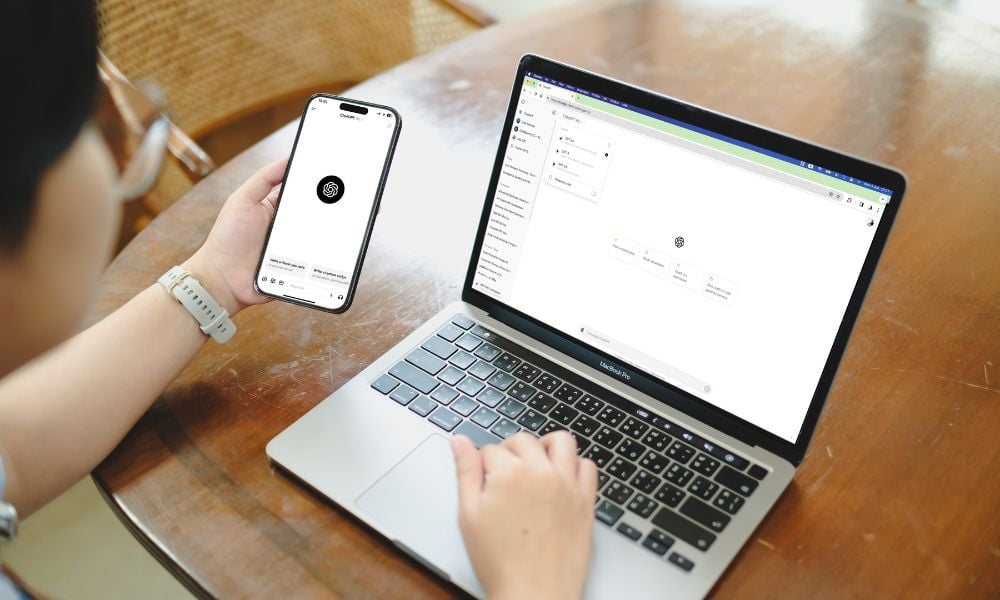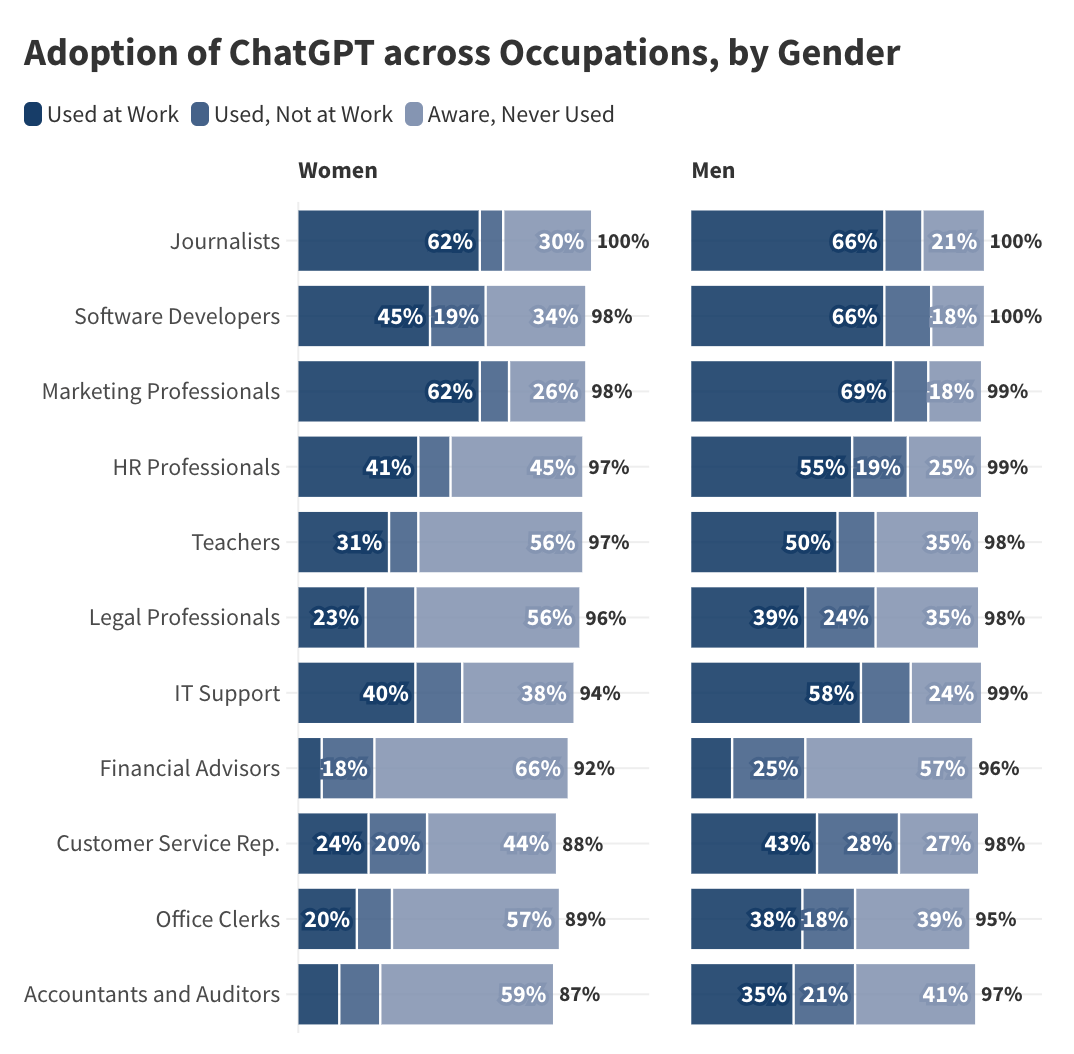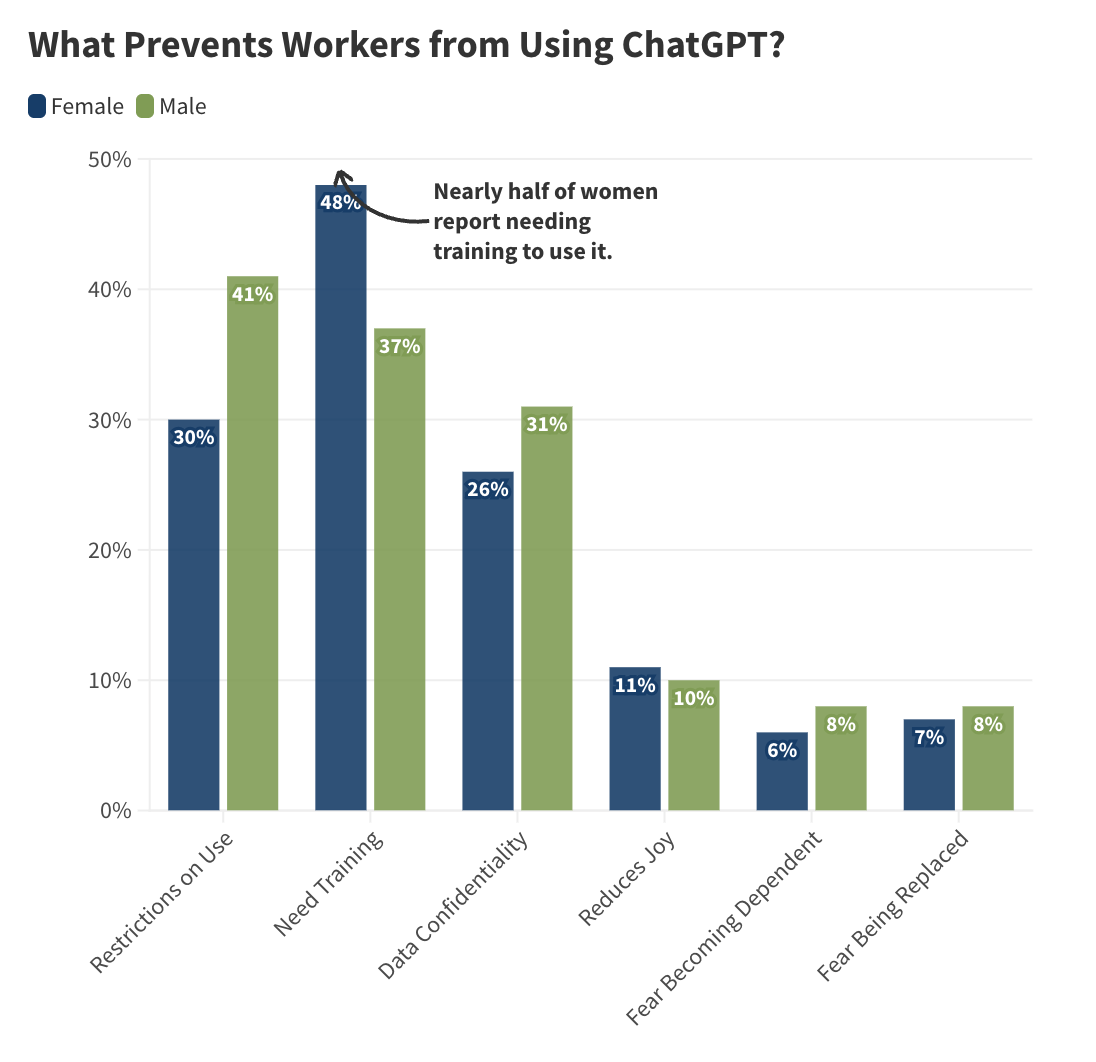
Study finds 'substantial gender gap unexplained by job specialisations'

The introduction of ChatGPT in workplaces has been widespread - but a new study recently uncovered has uncovered that a gender gap exists in terms of adoption across occupations, including HR professionals.
Researchers from the University of Chicago found that women are 20 percentage points less likely to use ChatGPT compared to men in the same occupation.
The findings stem from their recent poll of thousands of workers from 11 occupations, including HR professionals, that have been exposed to ChatGPT between November 2023 and January 2024.
"ChatGPT is widespread in the exposed occupations," the study read. "Half of workers have used it, among whom 72% have used it at work."
In the HR field, 97% of the respondents said they are aware of ChatGPT. However, 39% of them have not used it. Another 45% said they use it at work, while 13% said they use it, but not for their job.
But the report noted that there have been varying levels of adoption in workplaces, particularly regarding gender.
"Women are about 20 percentage points less likely to use ChatGPT than men in the same occupation," the report read.
"In particular, comparing workers within the same workplace and controlling for workers' detailed task mixes shrinks the gender gap from 20 to 17 percentage points, leaving a substantial gender gap unexplained by job specialisations."
For HR professionals, only 52% of women said they have adopted ChatGPT, lower than the 74% of male HR professionals.
When it comes to use, only 41% of women said they use ChatGPT for work, much lower than the 55% of male HR professionals.
What's stopping women from using ChatGPT
According to the study, 48% of women said they need training to use ChatGPT, while 30% said restrictions on its usage are preventing them from using the tool.

Anders Humlum, assistant professor of economics at the Booth School of Business, University of Chicago, warned that the gender gap in ChatGPT adoption means that women may be "missing out" on its benefits.
"Recent studies have documented meaningful productivity gains from tools like ChatGPT," Humlum, who is also one of the authors of the study, told CNBC. "The fact that women are significantly less likely to use these tools means they may be missing out on these benefits."
How to boost women's use of ChatGPT
Humlum said implementing targeted training on how to integrate ChatGPT into daily workflows can help close the gender gaps in implementation.
"Training increases confidence and lowers the barrier to entry," he said.
According to the researcher, the training should be practical and hands-on, as well as show how ChatGPT can support employees' tasks.
Humlum, in the CNBC report, also suggested the following measures: